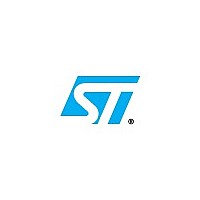sta559bw STMicroelectronics, sta559bw Datasheet - Page 18

sta559bw
Manufacturer Part Number
sta559bw
Description
5-volt, 2-amp, 2.1-channel High-efficiency Digital Audio System Sound Terminal
Manufacturer
STMicroelectronics
Datasheet
1.STA559BW.pdf
(67 pages)
Available stocks
Company
Part Number
Manufacturer
Quantity
Price
Company:
Part Number:
STA559BW
Manufacturer:
st
Quantity:
2 073
Part Number:
STA559BW
Manufacturer:
ST
Quantity:
20 000
Company:
Part Number:
sta559bw13TR
Manufacturer:
ST
Quantity:
37
Part Number:
sta559bw13TR
Manufacturer:
ST
Quantity:
20 000
Company:
Part Number:
sta559bwS
Manufacturer:
st
Quantity:
1 470
Part Number:
sta559bwTR
Manufacturer:
ST
Quantity:
20 000
Part Number:
sta559bwTR-UHF
Manufacturer:
ST
Quantity:
20 000
I
5
5.1
5.1.1
5.1.2
5.1.3
5.1.4
5.2
18/67
2
C bus specification
I
The STA559BW supports the I
slave) and the output port SDA_OUT (slave to master). This protocol defines any device that
sends data on to the bus as a transmitter and any device that reads the data as a receiver.
The device that controls the data transfer is known as the master and the other as the slave.
The master always starts the transfer and provides the serial clock for synchronization. The
STA559BW is always a slave device in all of its communications. It supports up to 400 kb/s
(fast-mode bit rate).
For correct operation of the I
has a frequency at least 10 times higher than the frequency of the applied SCL clock.
Communication protocol
Data transition or change
Data changes on the SDA line must only occur when the clock SCL is low. A SDA transition
while the clock is high is used to identify a START or STOP condition.
Start condition
START is identified by a high to low transition of the data bus, SDA, while the clock, SCL, is
stable in the high state. A START condition must precede any command for data transfer.
Stop condition
STOP is identified by low to high transition of SDA while SCL is stable in the high state. A
STOP condition terminates communication between STA559BW and the bus master.
Data input
During the data input the STA559BW samples the SDA signal on the rising edge of SCL. For
correct device operation the SDA signal must be stable during the rising edge of the clock
and the data can change only when the SCL line is low.
Device addressing
To start communication between the master and the STA559BW, the master must initiate
with a start condition. Following this, the master sends onto the SDA line 8-bits (MSB first)
corresponding to the device select address and read or write mode bit.
The seven most significant bits are the device address identifiers, corresponding to the I
bus definition. In the STA559BW the I
the SA pin configuration, 0x38 when SA = 0, and 0x3A when SA = 1.
The eighth bit (LSB) identifies a read or write operation (R/W); this is set to 1 for read and to
0 for write. After a START condition the STA559BW identifies the device address on the SDA
bus and if a match is found, acknowledges the identification during the 9th bit time frame.
The byte following the device identification is the address of a device register.
2
C bus specification
2
C interface ensure that the master clock generated by the PLL
Doc ID 18190 Rev 1
2
C protocol via the input ports SCL and SDA_IN (master to
2
C interface has two device addresses depending on
STA559BW
2
C













